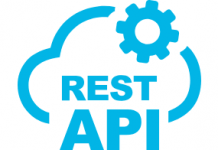Best Ways of Keeping Coding Simple
How to write efficient and clean code?
Writing efficient and clean code is essential for producing high-quality software that is maintainable and scalable. Here are some tips to help you write efficient and clean code:
-
Keep your code simple: Use clear and concise code to make it easy to read and maintain. Avoid using overly complex algorithms or convoluted code structures unless they are necessary.
-
Use consistent naming conventions: Use consistent naming conventions for variables, functions, and classes. This makes your code easier to read and understand.
-
Write modular code: Break your code into smaller, more manageable modules. This makes it easier to maintain, test, and reuse.
-
Optimize for speed and memory usage: Use algorithms and data structures that are optimized for speed and memory usage. Avoid using inefficient or slow algorithms.
-
Use comments and documentation: Use comments and documentation to explain your code and make it easier to understand. This will help other developers who may need to work on your code in the future.
-
Test your code: Test your code thoroughly to ensure it works as expected. Use automated testing tools to save time and catch bugs early.
-
Refactor regularly: Refactor your code regularly to keep it clean and maintainable. This involves removing redundant code, simplifying complex code, and improving the overall structure of your code.
By following these tips, you can write efficient and clean code that is easy to maintain and scale.
How to keep code simple?
Keeping code simple is an essential principle of writing clean, maintainable, and efficient code. Here are some tips on how to keep your code simple:
-
Follow the principle: Keep It Simple, Stupid. This principle emphasizes that simplicity should be the primary goal when designing software. Avoid using overly complex solutions when a simpler one will suffice.
-
Write code that is easy to read: Write code that is easy to read and understand. Use meaningful variable and function names, consistent formatting, and indentation to make it easier to follow.
-
Use well-known design patterns: Use well-known design patterns and programming paradigms. These are time-tested solutions that make it easier to reason about code and reduce complexity.
-
Keep functions and classes small: Keep your functions and classes small and focused on a single task. This makes it easier to reason about what the code is doing and reduces the likelihood of introducing bugs.
-
Avoid using nested loops and conditionals: Avoid using nested loops and conditionals as much as possible. These constructs can quickly become complex and difficult to understand. Instead, consider using functional programming techniques such as mapping and filtering to simplify your code.
-
Use libraries and frameworks: Use existing libraries and frameworks instead of reinventing the wheel. These tools are often well-designed, well-documented, and maintained by a community of developers.
-
Refactor regularly: Regularly review your code and refactor it to simplify it further. Refactoring involves improving the design of the code without changing its functionality. It helps keep the codebase maintainable and easy to work with over time.
By following these tips, you can keep your code simple, easy to read, and maintainable.
Master Your Coding Skills with BootSelf AI
If you're looking to enhance your coding abilities and upskill in artificial intelligence, look no further than the BootSelf AI app. This innovative platform provides AI-based coding lessons that are tailored to your individual learning pace.
Available on both iOS and Android, you can download the BootSelf AI app and start mastering coding skills today:











